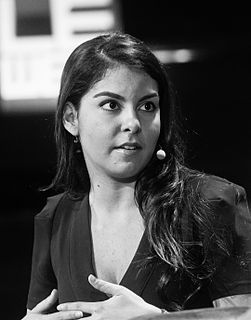A Quote by Donald Knuth
When you write a program, think of it primarily as a work of literature. You're trying to write something that human beings are going to read. Don't think of it primarily as something a computer is going to follow. The more effective you are at making your program readable, the more effective it's going to be: You'll understand it today, you'll understand it next week, and your successors who are going to maintain and modify it will understand it.
Related Quotes
Most programs are not write-once. They are reworked and rewritten again and again in their lived. Bugs must be debugged. Changing requirements and the need for increased functionality mean the program itself may be modified on an ongoing basis. During this process, human beings must be able to read and understand the original code. It is therefore more important by far for humans to be able to understand the program than it is for the computer.
An effective leader is willing to think about what's happening and how to understand what's going on. Facilitating flow and making others more conscious of it, the leader communicates an awareness of process to the group, making them more aware of their energies and options. One important principle is to keep track of who has not spoken. ... It's also important to notice when people do speak out but are not heard. Effective leaders practice patience, reminding themselves to wait and observe, remembering that there's always more going on in a group than we're consciously aware of.
I think that sense of surprise, that you don't know where something is going, or what's going to happen, even as you write, that you're making it up as you go along - that's important to me. It's not a question of shock or surprise in a gimmicky way. It's that as you read, you become more deeply into something and into what happens, and become more involved and engaged, you're learning something or you're appreciating something or seeing something differently - that's what's surprising.
Every time you show something to somebody they're going in one direction, when they see that thing you did they're going to go off track - maybe towards a direction that you think is more important. They'll be more discerning, they'll probably see things a little bit more profoundly, they'll spend more time trying to understand what's in front of them.
I wanted to write and then I saw Pierrot and I understand that I could express myself in a more... Also probably, I had an intuition that if I was going to only write, I will stay in one room all the time and never go out. I felt that if I was going to make movies, I would have to communicate with people and it would be good for me.
When you're going to school primarily for career purposes, it's more important to focus on which program is best for you. In addition, your success at college depends far more on what you do at the college than at which college you do it: Choosing the right program, then the right advisor, the right courses, the right term papers, the right co-curricular activities, the right fieldwork, the right internships. You can make those choices at any college.
When I'm naked, I really like to do push-ups. No. I think I really tackle it like everything else. If you're going to commit yourself to playing something, you have to be able to understand it. If you can understand it, then you can do it and go balls out with it. But, I've never been in a position where I've been like, "This doesn't feel right." I wouldn't do it, if it was that. I like the shock value of it. I think that, if you use it correctly, it's pretty effective, as long as I'm lit really, really, really well.
A lot of science doesn't require big "ns" but if you're trying to understand something about human health and you're looking at interventions that are not going to be either killing you or making you live forever - they're going to have some tweaking on the outcome - you need big numbers or you don't have enough power.
I've noticed that a lot of people do much better when all their resolutions are framed as 'Yes.' Not something like, "I'm going to give up French Fries," but something like "I'm going to eat three vegetables every day." "I'm going to hug more, kiss more, touch more." "I'm going to listen to more music." They do better when they frame things in the positive. And I think this is just part of human nature.



































